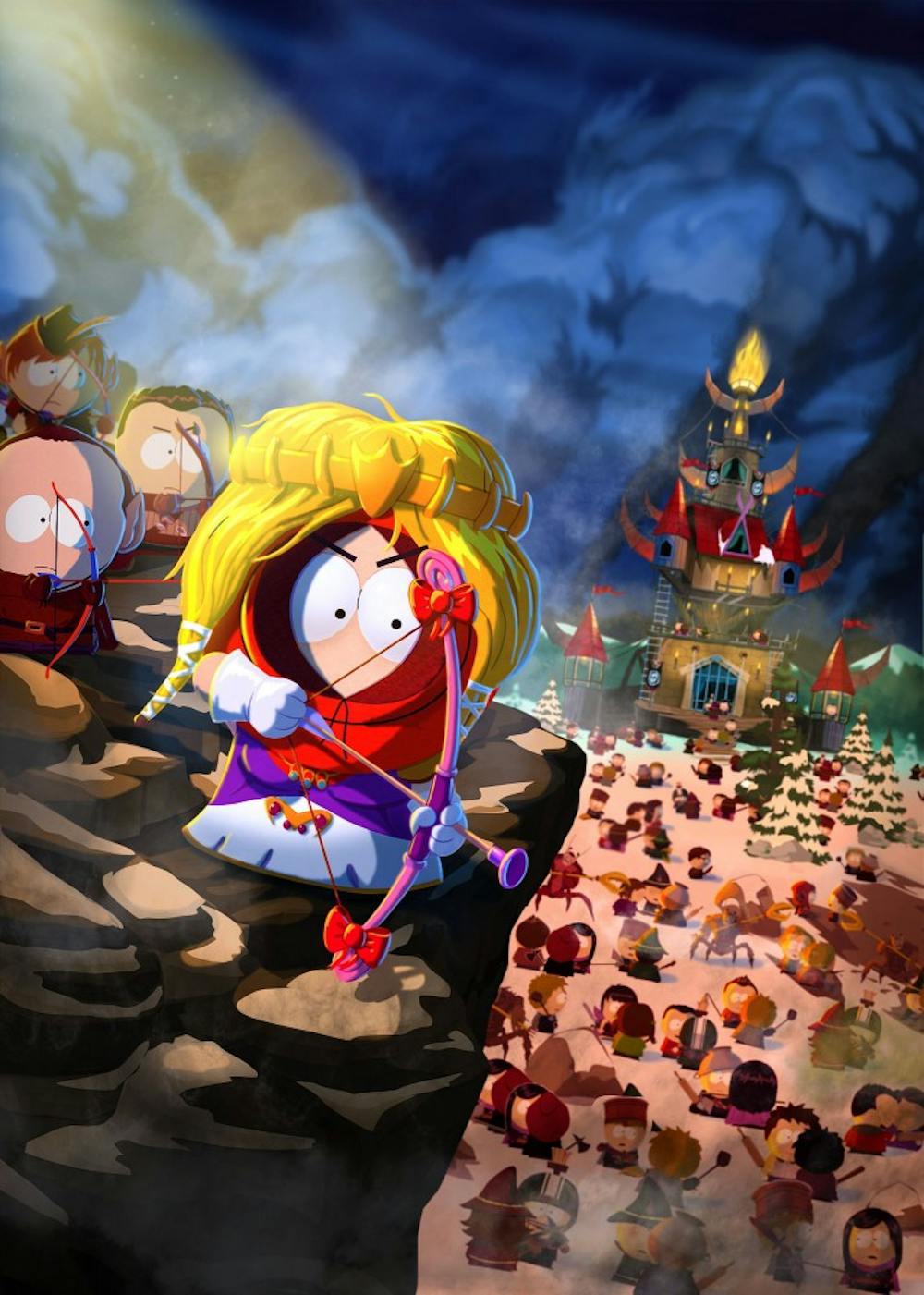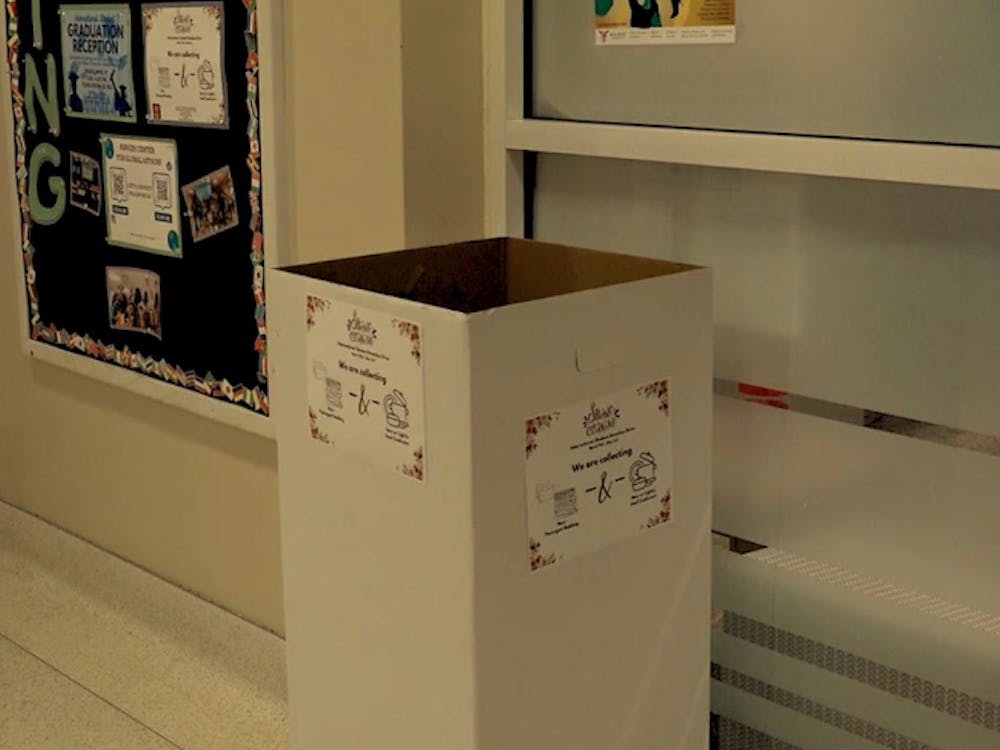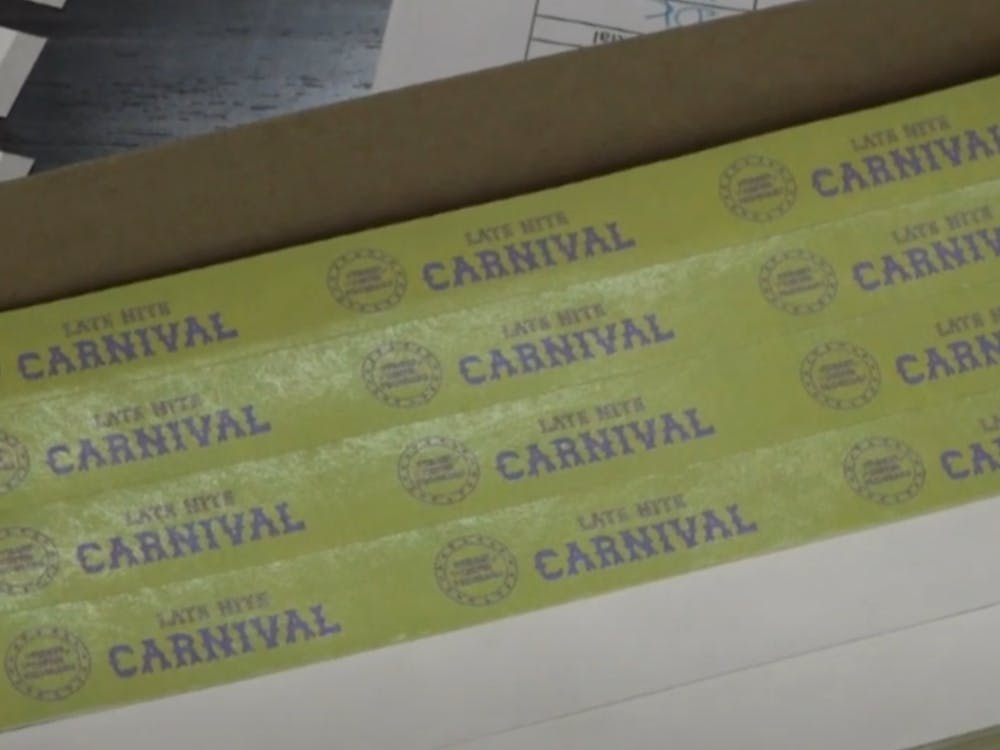Being the new kid is tough for a lot of young people. They wind up in a new place, have to make friends and establish some sort of identity. Most “new kids” aren’t (un)lucky enough, though, to get shipped off to South Park, Colo.
This is the scenario that begins “South Park: The Stick of Truth.” The silent protagonist given the name “Douchebag” arrives in the mystic mountain town to find the neighborhood embroiled in fantasy combat over the Stick of Truth. Quickly recruited by Cartman, mage leader of the humans, the protagonist chooses a class — Fighter, Mage, Thief or Jew — and is pitted against the Drell Elves. It’s up to the player and their new friends to reclaim the powers of the universe.
Right away, the coolest thing about this game is how easy it is to forget it’s an actual video game. “South Park: The Stick of Truth” is done in the same two-dimensional, paper cutout style as the show. This allowed the developers to easily switch the user experience from video game to cut scene, with many shades of gray in between.
The writing feels like a genuine South Park episode. Rife with the same bluntness, obscenity and juvenile merriment that flavor the show, the game delivers that special something fans will appreciate. Matt Stone and Trey Parker don’t seem big on pulling punches, and they have not done so here.
Combat is handled in old-school RPG style. Physical contact with an enemy transitions the player into the fighting mechanic. While most of the fighting follows the traditional turn-based model, Douchebag can use the environment to take out enemies before going toe-to-toe. Shooting down traps, setting explosions and employing allies can help clear the way to your objective.
The environment itself provides advantages and challenges integral to the quest’s design. Sometimes, Douchebag will have to knock over items, employ follower abilities or set off Rube Goldberg contraptions to get the job done. Also, the game doesn’t really spell out a lot of quest. It’s up to players to analyze, act and reap the rewards of figuring out the subtle puzzles.
Leveling up is accomplished by gaining experience points through fighting and completing tasks. Advancing allows players to upgrade their powers, specific to which class is chosen at the start. Perks can be earned by making new friends, which happens throughout the course of the game and can be accomplished by talking to townies in free roam.
Unfortunately, there are some glitches, which block the game’s progress. Save early and often. It’s a good mantra for pretty much any game, but definitely live by it here. Re-roll with a reload and try again. Don’t be scared off, though, it’s not “Fallout: New Vegas” levels of game-breakers or anything like that.
The game is framed like “South Park,” with the virtual camera remaining mostly fixed. Each area is set up like a scene from the TV show and the way the whole experience is directed helps sell this approach.
The whole game feels like one cohesive story experience: a cartoon that makes you participate. Players don’t get to just sit and watch Cartman, Kenny, Butters and the rest go about their shenanigans, but are made to actively conspire. It’s an approach to video game storytelling that focuses as much on the narrative as it does the exploding parts.
And that’s fine by me.





